Wennington wildfire: Victims still in hostels six months later
- Published
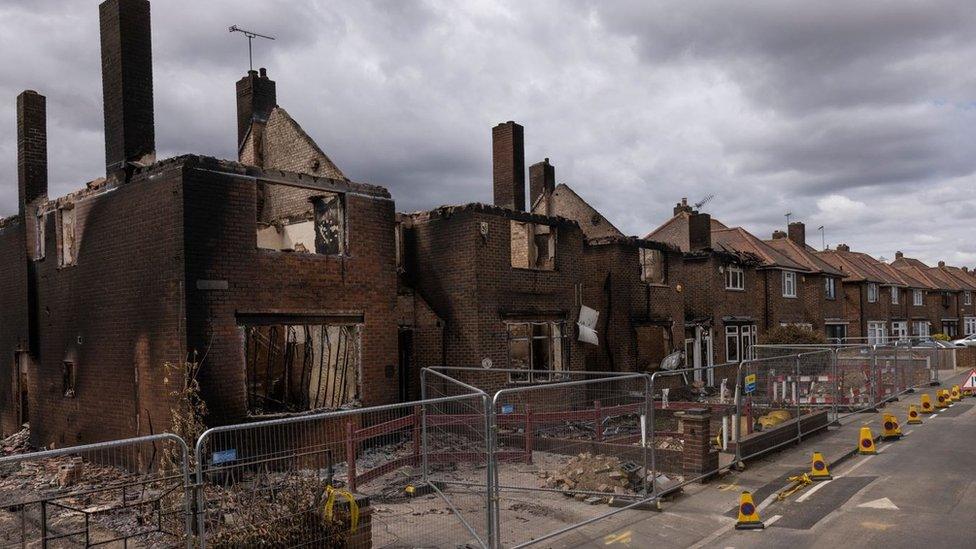
The fire broke out during last summer's heatwave
Six months after a fire during last summer's heatwave destroyed a row of homes in east London, residents remain homeless.
Sixteen homes were destroyed in the blaze which began as a compost fire in a back garden but quickly spread to the entire road in Wennington, Havering.
Now, displaced families are living in hostels amid a housing shortage.
Local councillor Sue Ospreay said she felt as if she'd "failed" in trying to help the residents find new homes.
Describing it as an "awful day", the councillor was just nine weeks into her role when the fire broke out on 19 July as temperatures reached a record 40C (104F).
"I come down nearly every day to see people and I'm heartened by the fact that demolition is taking place, so that is a progress, but there are still people who are living in hostels, who are living in caravans, whose insurances aren't sorted.
"And for those people, I feel like a bit of a failure."
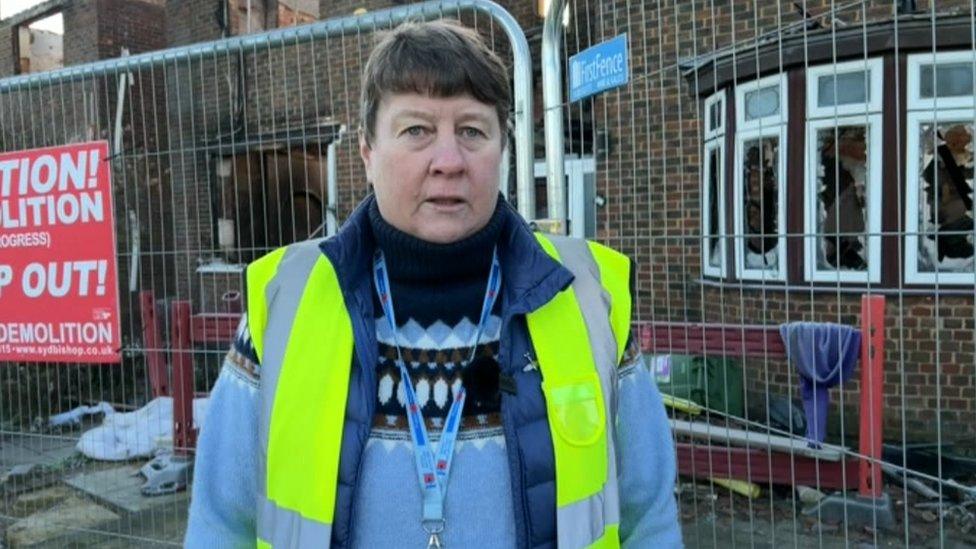
Councillor Sue Ospreay says feel at a loss at helping the Wennington residents
She added: "As a councillor you want to put things right and you haven't got the power or the money or the knowledge or whatever it is to help everybody.
"Lots of people have suffered considerably with this disaster."
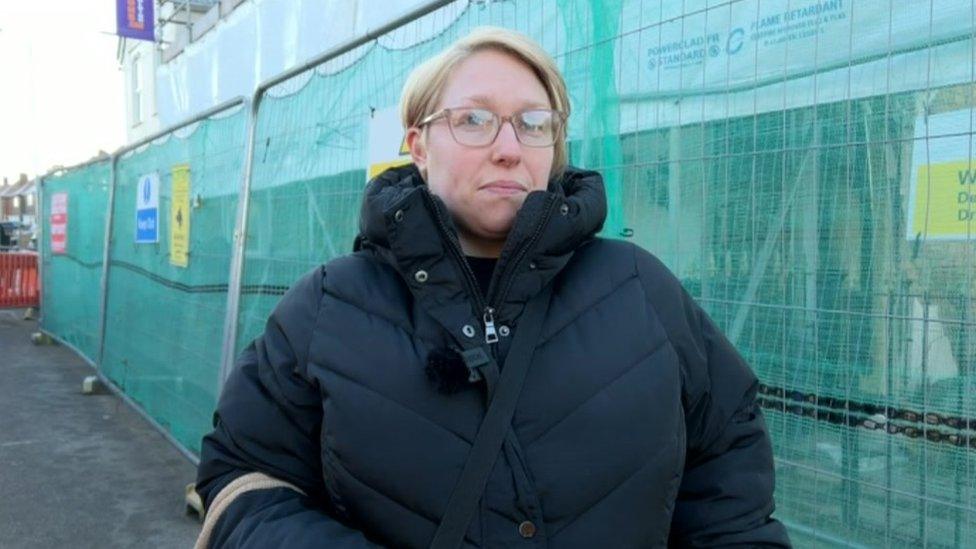
Sophie Woods has been living in a hostel with her family for the last six months
Mum-of-two Sophie Woods has been living in a hostel with her children since the fire.
She said she was told to go back to renting privately, but had not been able to because renting "at the minute is so extortionate, we can't afford it".
"We've been told that we just have to keep bidding for a council house and that we could we here for up to two years," she said.
"It's really hard with two young children in one bedroom, they said they were going to help people from the fire, but it doesn't really seem like they've done that."
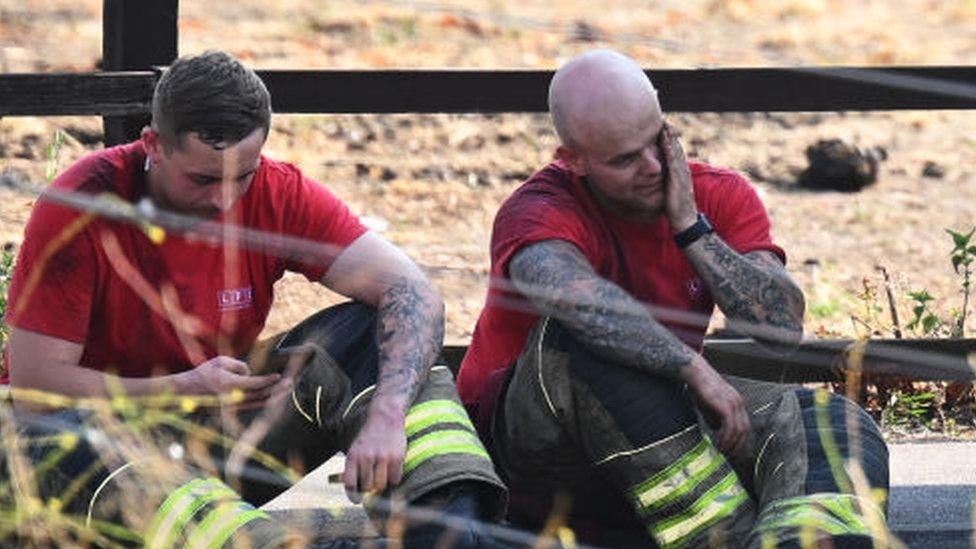
About 100 firefighters tackled the blaze
Residents Dave and Robbie, who did not want to give their surnames, had most of their garden, with various outbuildings such as a bar and pool house, go up in smoke.
Supporting other residents, they say they try to remain positive, speaking of the possibility for a new start. Dave also said he wants to fight to bring in fire breakers to stop a reoccurrence.
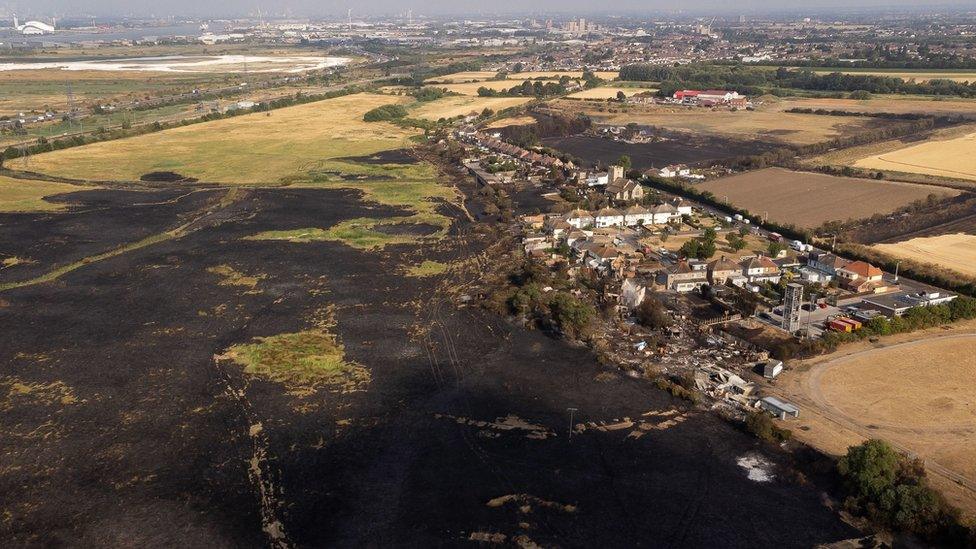
The fire destroyed fields as well as the homes
"Talking to the residents in that way gives them a lift, we can't look backwards, we can only look forward.
"But this would never have happened if there were fire breaks. Where you've got residential property backing onto fields, you've got no protection.
"So I'd say to everyone that we talk about this and make it happen."
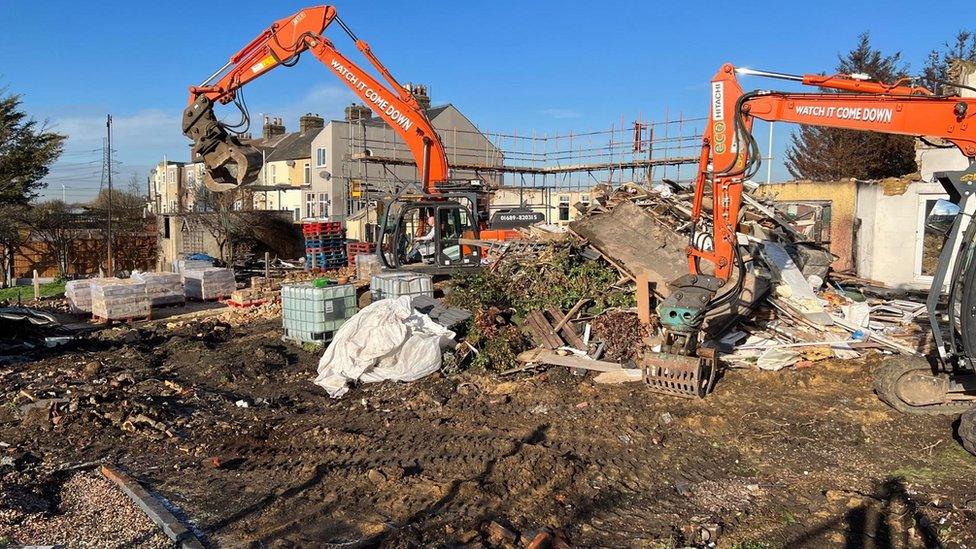
Havering Council leader Ray Morgon said he hoped the demolition would help families move on
Havering Council said it had offered help to those affected, such as mental health and trauma support as well as on practical matters such as how to navigate "tricky insurance processes".
The council's leader, Ray Morgon added: "Demolition has now begun on some of the destroyed properties, and I hope this will help those families start to move on. We will, of course, continue to support them where needed.
"We are also looking ahead to the summer, and working with our environment team, the London Fire Brigade, and other partners to assess the biggest potential risks in the event of another heatwave."

Follow BBC London on Facebook, external, Twitter , externaland Instagram, external. Send your story ideas to hellobbclondon@bbc.co.uk, external